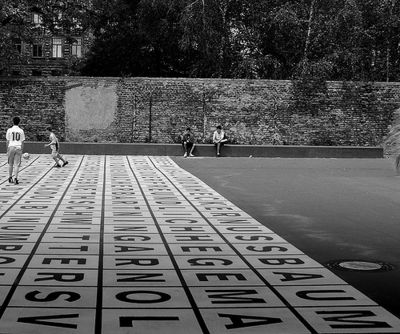Quality
| OER Handbook for Educators - Compose OER | |
|---|---|
| Compose OER | Quality | Audio | Images | Learning Support Systems | Office | Web Authoring | Video | Mobile Access | Perspectives |
In all phases of the OER cycle, attention to quality is vital. Issues around the quality of OER are debated vociferously within the OER community. This handbook does not cover fully the issue of quality, but highlights a few things for you to keep in mind while composing, remixing and adapting OER.
During composition, think of the learners and the learning environment. Are the resources suitable and being pieced together in a way that will engage the learners and enable them to reach the required level of understanding?
|
Based on your answers, select components to include and prioritize areas for revision and localization. For example, objectionable material should be excluded immediately, factual errors should be eliminated, and consider whether or not it makes sense to localize components before remixing. Decisions on which components to include will be constrained by the resources you have available including time, people with technical and artistic skills, etc. In particular, think about the extent of revision and localization required. Ultimately, you need to decide which changes are most helpful and practical under the circumstances. Quality is contextual, and no one knows the context of your own classroom and learners better than you (and the learners).
The Ultimate Test
Do learners actually learn the intended knowledge, skills, or attitudes from the OER?
It is not uncommon for the composer to feel a strong sense of ownership and pride having built an OER, and to proceed to use it with great enthusiasm. This has been known on occasion to blind the educator to its ineffectiveness. Therefore, be sensitive to the efficacy of the OER. Observe your learners and get their feedback. Continually adapt the resources and be prepared to dispense with an OER if it is not working for your learners.
See Evaluation in the Use OER chapter for more information.
Collaborate for Quality
Whether you are composing OER for learners, for fellow educators, or for personal growth, developing OER is a learning experience in itself. Being part of a community of educators can greatly enhance your work. Engage with the community in all phases of the OER development cycle, even the early phases of composition. There will certainly be peers with common interests facing the same sorts of challenges. The result will be a higher quality OER for yourself, your learners and the OER community as a whole. See OER Forums in the Conclusion for potential places to meet peers[1].
Notes
- ↑ Some repositories have discussion forums or social networking features. Check the more popular and widely used OER Repositories to see what kinds of collaboration are available.
